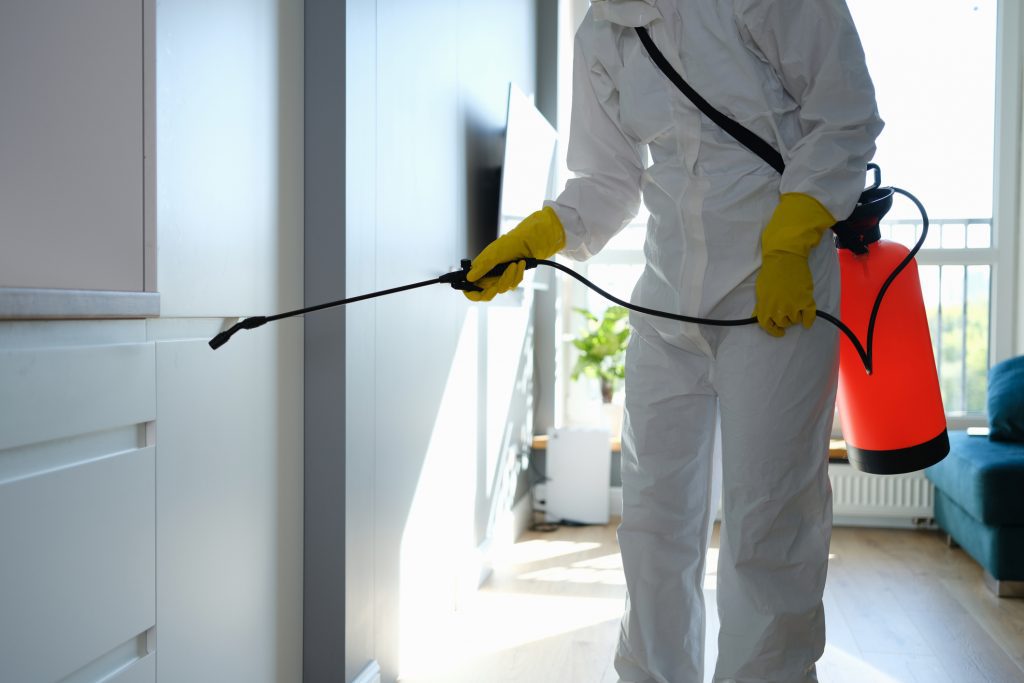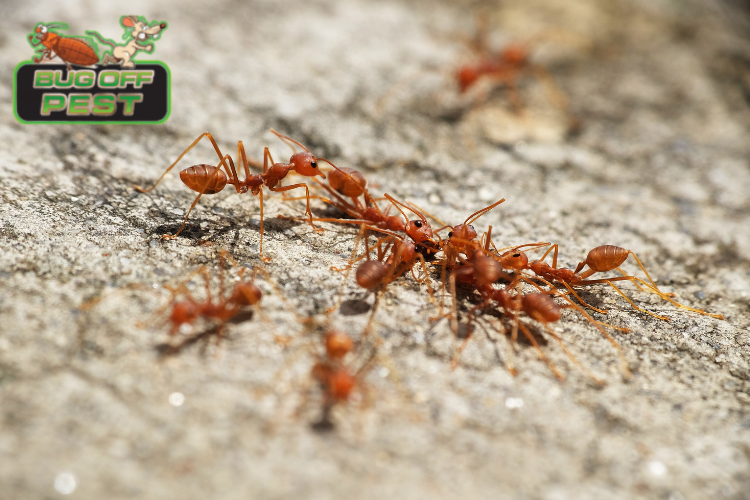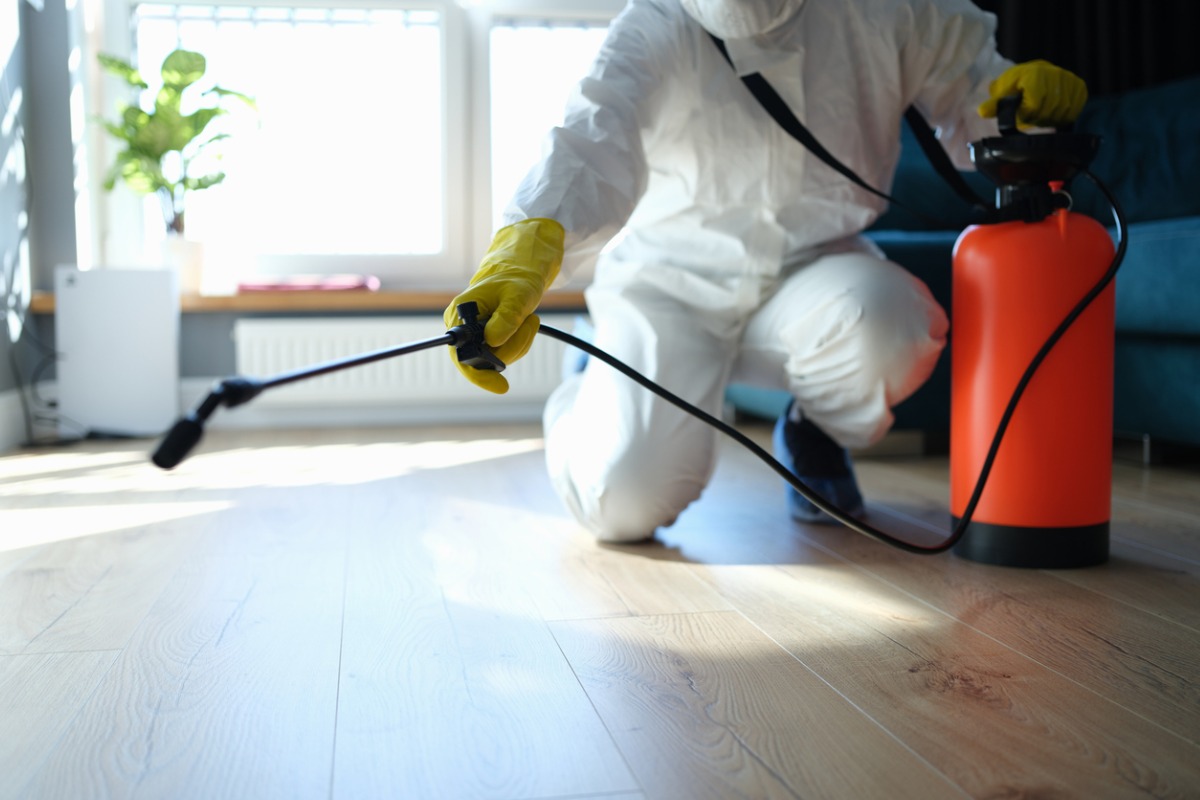End unwanted pests with expert Pest Control in Port Charlotte today.
Exploring Cutting-edge Methods and Products for Reliable Bug Control
The landscape of bug control is advancing, noted by the development of cutting-edge strategies and items designed to boost effectiveness and sustainability. From clever traps equipped with sophisticated tracking systems to biological techniques that utilize all-natural predators, these developments provide a standard change in how we approach pest administration. Green chemical choices and pheromone disruption techniques use targeted options that straighten with ecological stewardship. As the market faces these advancements, a closer evaluation reveals not just their implications however additionally the prospective obstacles that might emerge in their execution.
Smart Traps and Monitoring Solutions
Exactly how can contemporary innovation improve bug administration? One considerable advancement is the growth of smart traps and keeping an eye on systems, which supply real-time information and analytics for efficient insect control. These systems make use of sensing units and wireless innovation to spot bug activity, notifying property supervisors and bug control experts to invasions prior to they rise.
Smart catches are geared up with features such as bait terminals that bring in pests and capture them efficiently. These catches can be monitored from another location, enabling for prompt treatments and reducing the requirement for substantial chemical applications. Furthermore, the assimilation of artificial intelligence formulas makes it possible for these systems to separate between target insects and non-target types, improving the precision of parasite control procedures.
Furthermore, the data accumulated from wise traps can be evaluated to identify patterns in bug actions and ecological elements contributing to problems (Pest Control in Port Charlotte). This information is vital for establishing targeted pest monitoring methods tailored to particular atmospheres. By accepting wise traps and checking systems, pest control professionals can improve their functional efficiency and reduce the eco-friendly influence of parasite management, eventually resulting in safer and a lot more sustainable methods in the industry
Biological Insect Control Approaches
Making use of all-natural predators and bloodsuckers, biological parasite control techniques provide an eco-friendly option to chemical therapies. This strategy entails the intro or enhancement of specific microorganisms that can naturally manage parasite populaces, therefore decreasing reliance on synthetic pesticides. Typical instances consist of using ladybugs to regulate aphid infestations and parasitical wasps to target caterpillars.

Organic control can be categorized into 3 primary approaches: classic, augmentative, and conservation. Timeless biological control involves importing all-natural adversaries from the bug's native habitat, while augmentative control entails raising the populace of existing natural enemies through launches. Preservation techniques focus on producing conditions that sustain these useful organisms in the ecological community.
It often needs an extensive analysis of pest dynamics and the life cycles of both the insects and their natural opponents. As understanding of ecological problems grows, biological parasite control methods are increasingly acknowledged for their sustainable duty in incorporated parasite management programs.
Eco-Friendly Chemical Alternatives
Environment-friendly chemical options provide a practical option for bug management official site that minimizes environmental influence while successfully regulating bug populaces. These choices are obtained from all-natural resources and are meticulously developed to target specific insects without harming helpful microorganisms, making them a vital component of sustainable parasite control strategies.
Among the most efficient environmentally friendly alternatives are plant-based insecticides, such as neem oil and pyrethrin, which are derived from the seeds and blossoms of numerous plants. These substances interrupt the life process of insects, minimizing their populaces without the toxic effects associated with standard chemicals - Pest Control in Port Charlotte. Furthermore, crucial oils like peppermint and clove oil show repellent properties, even more improving their energy in parasite management

Furthermore, environment-friendly chemical choices typically damage down faster in the setting, reducing the danger of soil and water contamination. This characteristic aligns with the enhancing consumer need for lasting practices in farming and city bug control. As study proceeds to advancement, the development of innovative environment-friendly solutions will certainly further enhance efficiency and widen application areas, allowing pest monitoring experts to embrace greener, more accountable methods in their practices while safeguarding human health and the setting.
Pheromone Interruption Strategies
An additional innovative method in lasting pest management is using pheromone interruption methods. These techniques exploit the all-natural chemical signals, or pheromones, that pests utilize for interaction, specifically in mating behaviors. By interfering with these signals, bug populaces can be properly managed without considering dangerous chemicals.
Pheromone traps are typically utilized in this method. These traps use synthetic versions of insect pheromones to entice male insects, thereby reducing their ability to situate women and recreate. Gradually, this can result in a significant decline in pest populaces. Additionally, the launch of repellent scents can create complication amongst insects, further hindering their breeding procedures - Pest Control in Port Charlotte.

Integrated Parasite Management Techniques
Efficient insect control usually calls for a comprehensive technique, and Integrated Insect Management (IPM) techniques give a framework for accomplishing this objective. IPM incorporates numerous administration methods to lessen pest populations while minimizing dependence on chemical pesticides. This multifaceted approach begins with extensive monitoring and recognition of bugs, permitting targeted interventions based on certain parasite pressures.
Cultural techniques, such as plant investigate this site turning and sanitation, play an important duty in stopping bug establishment. Organic controls, including all-natural killers and parasitoids, are employed to keep parasite populaces at manageable levels. When required, careful chemical treatments are used, emphasizing lower toxicity to non-target species and the atmosphere.
By employing this all natural technique, IPM not only boosts pest control efficiency however additionally adds to lasting eco-friendly balance. Eventually, Integrated Insect Management represents a forward-thinking option that straightens agricultural productivity with ecological stewardship, making it necessary in modern bug control strategies.

Verdict
In final thought, the assimilation of ingenious methods and items for reliable insect control represents a considerable advancement in lasting parasite management. Smart catches and checking systems, biological bug control approaches, green chemical options, and pheromone disturbance methods collectively boost the performance of bug administration strategies.